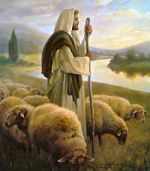Make your gift today!
Help keep Catholics around the world educated and informed.
Already donated? Log in to stop seeing these donation pop-ups.
Ad Orientem: the battle continues
By Phil Lawler ( bio - articles - email ) | Jul 14, 2016
- Cardinal Robert Sarah remains the prefect of the Congregation for Divine Worship: the Vatican’s top liturgical official. So his suggestion that priests should celebrate Mass ad orientem must be taken seriously, even if (as the Vatican press office so helpfully noted) it is not a directive. Moreover, Pope Francis evidently did not tell Cardinal Sarah to back away from his suggestion, because he authorized the publication of his speech after meeting with the Pontiff. Those two important points are conveyed in a Catholic World Report interview with Dom Alcuin Reid, the coordinator of Sacra Liturgia: the group to which Cardinal Sarah addressed his remarks. He also reports that when the cardinal made his plea for ad orientem worship to the London conference, he “received sustained applause from those present for some minutes.”
- Also on Catholic World Report, Adam DeVille offers some useful perspective on how how the ad orientem posture re-connects Catholic worship with a solid tradition that was unbroken until Vatican II. For that reason, he observes, it would be a boon for ecumenism, insofar as the Orthodox churches—which all worship ad orientem—would see it as a move back to the tradition they uphold. (DeVille writes that “the posture of the entire assembly facing liturgical East is universal and ancient, and until the 1960s no Christian, East or West, would ever have dreamt of disorienting the priest by turning him around in the wrong direction.” But wait: Protestant churches had their minister—not priests, admittedly—facing toward the people.) DeVille rightly observes that the liturgical reform encouraged by Vatican II was hijacked by “shady operatives,” who imposed the versus populum novelty by a top-down enforcement; it was not an organic development. So it’s quite possible to “reform the reform” by scrapping the experiment with versus populum worship; that does not require a retreat from the healthy impulse to reform that was fostered by Vatican II.
- Liberal liturgists, however, deny that possibility. From their perspective, any step back from the liturgical changes that occurred after the Council—whether or not those changes were mandated by the Council—must be immediately condemned as a betrayal of Vatican II. Thus they cannot allow for even the possibility of a “reform of the reform;” it must be accepted de fide that every change is a change for the better. One of the most telling commentaries on Cardinal Sarah’s address comes from a dedicated liberal liturgist, Andrea Grillo, whose blanket condemnation of the “reform of the reform” comes to a climax in a remarkably blunt rejection of everything Pope Benedict XVI sought in the liturgy. There’s an obvious logical problem with that argument: If what one Pope (Benedict XVI) said was all wrong, how can we know that another Pope (Francis) is right?
Liberal Catholics suggest a radical discontinuity in the Catholic tradition, claiming that Vatican II overthrew previous teachings. Unfortunately, many traditionalist Catholics lend their support to that argument, although they lament the discontinuity while the liberals than applaud it. Both sides imply that at some point—either before or after Vatican II—the Church was not guided by the Holy Spirit. So we’re back to the question posed above: If the Church is sometimes right and sometimes wrong, how can we trust any given statement?
There is only one escape from this dilemma: the “hermeneutic of continuity” that Pope Benedict recommended. The statements and decisions of one Pontiff or one council must be read in the light provided by previous Popes and councils. If you look across the entire history of Church teaching and practice on the liturgy—including the documents of Vatican II, but reading them in the light of the tradition—what do you think of ad orientem worship? That’s the only question that should matter.
All comments are moderated. To lighten our editing burden, only current donors are allowed to Sound Off. If you are a current donor, log in to see the comment form; otherwise please support our work, and Sound Off!








